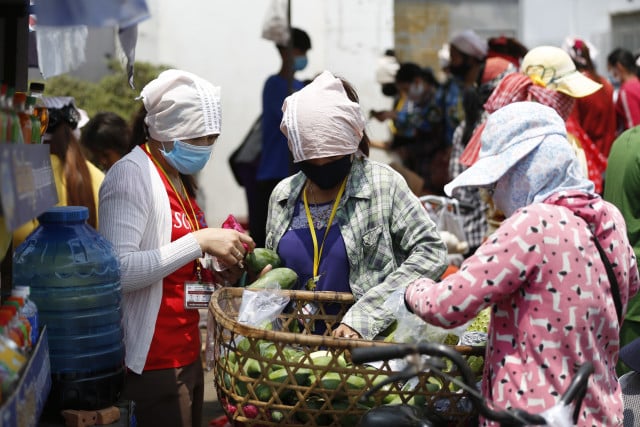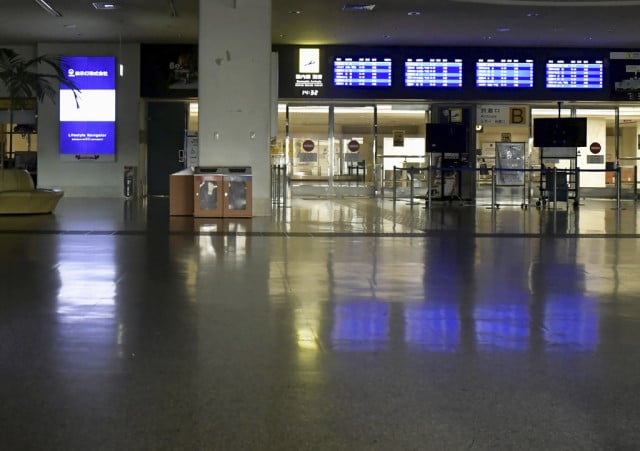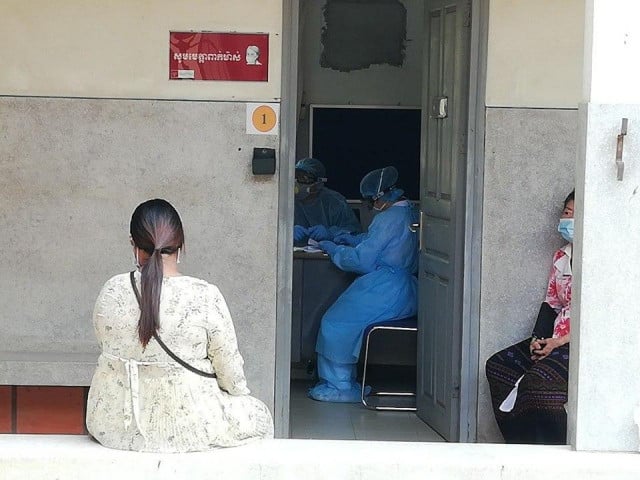“They Breathe Hope” Mother Nature on Prison, Freedom and the Future
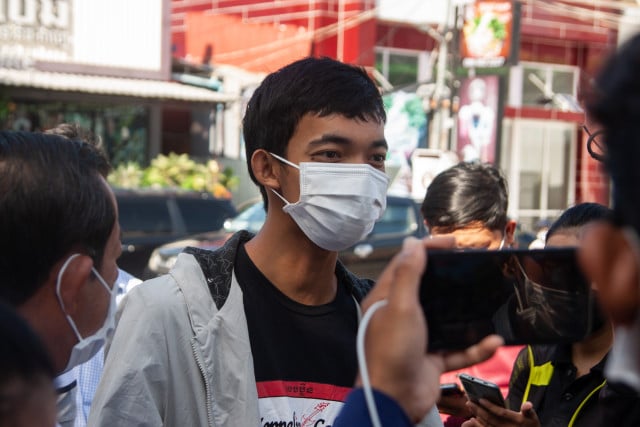
- By Gerald Flynn
- and Phoung Vantha
- November 29, 2021 11:43 AM
Just two weeks into their newfound freedom, environmental activists from Mother Nature have vowed to continue their defense of Cambodia’s natural resources, despite their experiences in prison
PHNOM PENH--With six of their activists being released from prison on two weeks ago, environmental activism collective Mother Nature has rebounded from a year of judicial harassment and on Nov. 24 picked up a Frontline Defenders Award for Human Rights Defenders at Risk.
Rights advocates from six countries scooped awards from Frontline Defenders—an Ireland-based charity that advocates for human rights defenders across the world—with Mother Nature winning in Cambodia.
“In each case, the [human rights defenders] have faced various forms of harassment, intimidation, and threats, with some facing violence and some have been detained and charged; and they respond with dignity, grace and determination to persevere, demonstrating incredible courage and hope,” Frontline Defenders wrote in a statement ahead announcing the winners.
The award caps off a turbulent year for the young activists at Mother Nature, who have weathered accusations of incitement, plotting to overthrow the government and insulting the king. The prison sentences that followed have done little to deter Mother Nature, which was stripped of its official NGO status in 2017 after the group’s founder, Alejandro Gonzalez-Davidson, was deported from Cambodia in 2015.
“We love justice and we love our nation,” Ly Chandaravuth said.
Arrested on June 16 and released this month, 22-year-old Chandaravuth was a law student at the Royal University of Law and Economics in Phnom Penh, before he joined Mother Nature.
“We’ve seen trees cut down, mountains demolished and all the businesses involved being completely lacking in transparency,” he explained in a Phnom Penh café, just moments after veteran unionist Rong Chhun had mobilized an impromptu press conference alongside other activists. “We want to see sustainable development in Cambodia, we want to see local people benefiting from it—not just a few powerful people.”
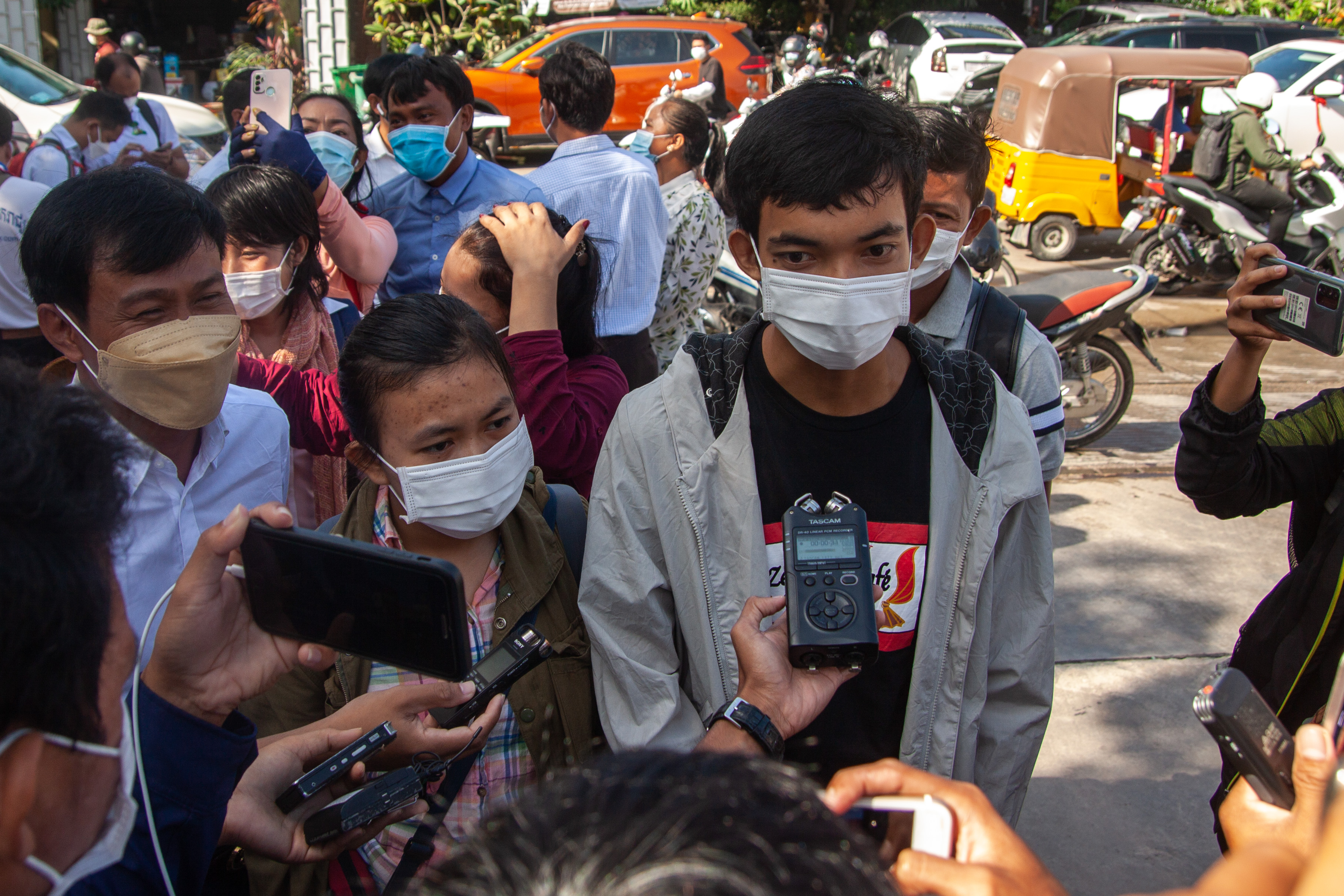
Through much of 2019 and 2020, Chandaravuth said he was only working on the fringes of Mother Nature and wasn’t directly involved in their work. Instead, he said, he had been offering legal advice to them on a voluntary basis, but joined full-time following the arrests in 2020 that saw Thun Ratha, Phun Keorasmey and Long Kunthea of Mother Nature ensnared in a broadening crackdown on dissent.
But Chandaravuth’s work with Mother Nature quickly garnered police attention. On June 16, 2021, he was looking into the sewage-like water at Phnom Penh’s Riverside along with two other Mother Nature activists. The stink, he said, had inspired him to get the water tested, but three plainclothes police officers approached them saying there was a warrant out for their arrest.
“They took us to the Phnom Penh Police Commissariat, but they wouldn’t show us the warrant until maybe an hour later—I suspect they wrote it up after we were detained,” said Chandaravuth.
No Arrest Warrant, No Lawyer, No Investigation
He was moved to Correctional Center 1 (CC1) in Phnom Penh on June 21, but was granted no opportunity to speak to his family or a lawyer and for six days. His family had no clue as to his whereabouts—he was simply missing. When he asked for a lawyer, authorities told Chandaravuth that he was a law student and could defend himself.
Chandaravuth initially shared a room with another activist for 14 days while the prison guards made them quarantine before being thrust into the notoriously unhygienic and overcrowded Cambodian prison. CC1’s official capacity is thought to be 2,050 inmates, but rights groups have estimated that some 7,400 prisoners were held there as of March 2021.
“When I arrived, things were better for me than for activists who’d been jailed previously—they’d staged a demonstration in the prison and demanded the right to speak to one another, so while most people were friendly, I think a lot of [guards and inmates] understood what we did, maybe even supported us, there were some guards who didn’t like us,” he said, adding that there were efforts to restrict his movements by certain guards.
Delaying access to toilets, healthcare and visiting relatives were routine methods that CC1 prison guards used to hamper the activists while in prison, Chandaravuth said.
“I don’t think we got a fair trial,” he added. “I was held for five days when the longest the police can hold you without charging you is 72 hours, I didn’t see my lawyer until the trial, couldn’t speak to my family and wasn’t visited by an investigating judge or any authorities, so these are all violations of procedure.”
The news that they were to be released reached Chandaravuth via a small radio he was allowed to keep in prison and while the official proclamation came through calling the release “court procedure,” Chandaravuth suspected that the Asia-Europe Meeting in Phnom Penh this week, coupled with increased scrutiny on Cambodia’s role as ASEAN chair for 2022 have been factors in his newfound freedom, precarious as it may be.
Justice Ministry spokesperson Chin Malin said shortly after the release Chandaravuth and 26 other activists that it was not a matter of international pressure, simply the courts were doing their jobs.
Imprisoned for Planning a One-woman Protest
For Phun Keorasmey however, no such radio was available and her experience behind bars differed from Chandaravuth’s, but her arrest bore striking similarities.
“I knew I was being followed, me and Long Kunthea had come from Por Senchey Districto to my house in Chbar Ampov District and the next day, the day Kunthea was supposed to walk to [Prime Minister] Hun Sen’s house, we went to get breakfast and people were already outside my house,” she explained.
Kunthea was planning to stage a one-woman peaceful protest, walking from Wat Phnom to Hun Sen’s house to raise awareness of the environmental problems associated with filling in Phnom Penh’s lakes. The protest never took place, instead, plain clothes officers bundled Keorasmey and Kunthea into a car, saying they were under arrest. No warrant was shown to the activists upon their arrest.
Keorasmey joined Mother Nature in April 2020, she was attending university in the capital, studying computer sciences and was drawn into environmental activism through the work of Cambodia Youth Network, but saw Mother Nature’s work as “realistic activism.”
“We saw there weren’t many youths who were interested in Cambodia’s natural resources, so I decided to join Mother Nature—not just for environmental action, but to show people how to exercise their rights and to have the freedom to work,” Keorasmey added, saying that she knew the risks, but stressed that such risks apply to anyone working in human rights or environmental activism in Cambodia.
Naturally enough, Keorasmey’s activism plotted a similar course to those of other Mother Nature activists before her—she was arrested on Sept. 3, 2020. Authorities took her phone, denied her access to a lawyer or her family.
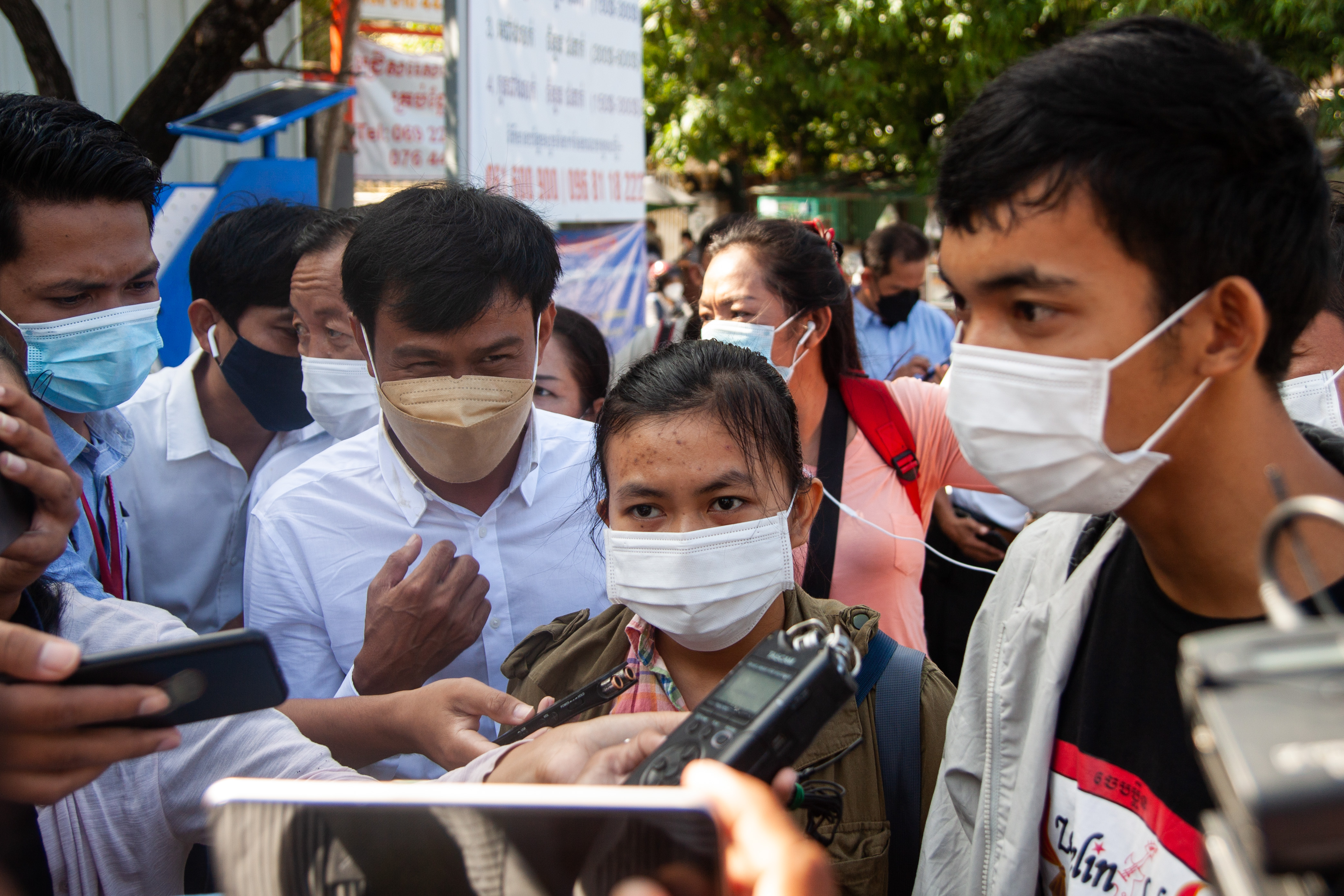
At first, it seemed likely that Thun Ratha and Long Kunthea would receive prison sentences while Keorasmey, who had only been with Mother Nature for six months, was expected to walk free, perhaps with a fine or a caution. Instead, on May 5, Keorasmey was hit with an 18-month sentence a Correctional Center 2, which rights groups have warned is overpopulated to the tune of 388 percent.
“The first room I was locked up in had about 160 people inside, I was there for six months of my sentence before being moved to another room which had around 30 people inside,” she recalled. “I spent eight months in that second room, there was no harassment, but the environment, the hygiene, the lack of food and water, the corruption, it was all terrible—they’re not trying to make anyone improve or rehabilitate, the experience only makes people worse.
“People who go to prison often end up going back,” she added.
The General Department of Prisons said last year that Cambodia’s recidivism rate sits at approximately 17 percent, so for the roughly 40,000 inmates across the country’s 28 penal facilities, nearly 6,800 of them would return to incarceration upon release.
“One of my roommates died in front of me,” said Keorasmey. “There was nothing we could do, we’re not doctors. The girl died, she told us she was struggling to breathe, so we called for a doctor—in 30 minutes she was dead. All they did was come in to collect the body afterwards, they wouldn’t even tell us how she died, they hide information like that.”
Freedom of a Sort
Her release from prison came as a surprise, she said, not least because an Appeals Court hearing on Nov. 5 had upheld her sentence, but it was a welcome surprise for both Keorasmey and her family.
“My father was happy—happy but worried about what I’ll do next—I’m still in my fourth year of university so he wants me to finish before I do anymore activism,” she said, adding that her family have been blacklisted by her community. Few want to associate with them in case there are repercussions.
“I feel guilty for him about that, but I have no choice, I have to continue,” said Keorasmey.
Her university lecturer has been very supportive, helping to make sure she can re-enroll on her computer sciences course, but she vowed to continue her work with Mother Nature.
“It’s better for Cambodian youths to join us and show they’re worried about what the government is doing, yes they can take us back to jail whenever they want, but they can’t jail everyone who cares about the environment,” she added. “We’re an example to the youth, we’ve shown that even a 19-year-old girl can stand up and defend nature from the government.”
Of course she is worried about her safety, particularly in light of the gruesome slaying of a political activist over the Water Festival weekend, but such worries, she said, cannot be allowed to stop their work.
Chandaravuth agreed, “We’ll continue to protect the environment as we did nothing wrong, people support us and with public support we can go further, we didn’t commit treason—that allegation went too far.”
Both activists are young and afraid, worried for their personal safety and that of their families, but as Chandaravuth observed, if they let these fears prevent them from being activists, then few others in Cambodia would gladly step up to take their place.
The arrest of Keorasmey, Kunthea and Ratha saw a surge in people trying to join Mother Nature, as well as donations and people making it clear they supported the environmentalists, according to Chandaravuth.
“I think it will make a difference someday, when more people have this courage, it’s tough now because we live in what I think we can call a dictatorship, but I hope that people will continue to talk more freely about environmental issues and will join us in protecting our natural resources,” Chandaravuth said.
But while the threat of a return to prison looms over the Mother Nature activists, buoyed by another award and their newfound freedom, it looks as though the environmental group will be set to continue their work at a time when Cambodia notably avoided making any new pledges at COP26 in Glasgow.
A Growing Awareness of Environmental Issues in Cambodia
Cambodia was conspicuously absent from the agreement to end deforestation and did not join the Forest and Land Use pledge at the climate summit and already, the younger generation is taking note of these failures, with other activists also shifting their focus to environmental issues as the climate crisis takes on a more existential weight for Southeast Asians.
Gonzalez-Davidson—Mother Nature’s founder—said that he does not see any meaningful changes in terms of illegal logging, fossil fuel consumption and other drivers of deforestation in Cambodia.
“The reasons are obvious: Key elements of the regime make a lot of money out of deforestation, and the regime thinks it could limit the country's ability to continue developing its economy,” he said, but conceded that China’s recent announcement to halt coal financing created a predicament for Cambodia.
Public scrutiny, continued environmental activism and international circumstances could, Gonzalez-Davidson suggested, force Cambodia to start looking at alternatives to the coal and hydropower projects that have long drawn the ire of his group.
“The most pressing environmental issue in Cambodia should be the undeniable fact that the government is not only very repressive and increasingly steeped in paranoia, but also making a lot of mostly dirty money out of the destruction of the environment,” said Gonzalez-Davidson, pointing to illegal logging, the loss of fisheries and sand mining that is seeing rapid environmental changes across Cambodia.
These problems, he said, will likely not change under the change-resistant political situation in Cambodia, but will be exacerbated by climate change, as has been seen by farmers in recent years. Mother Nature’s approach, he argued, has worked in terms of reaching Cambodians and shining a light on the corruption that drives environmental destruction, but he said he is seeing more young Cambodians joining the cause as a direct result of Mother Nature’s activism.
But with expansion comes risks and while Gonzalez-Davidson reiterated that environmental activists are not a threat to the government, he said they are being treated as one and his organization has had to adapt to survive.
“[I]n order to minimize future risks against them, we are in the process of making major changes to our strategy and approach,” he said. “That way we hope to continue trying to protect what's left of the country's natural resources and continue inspiring others, while at the same time ensuring that the regime's level of paranoia against us decreases.”
Rising levels of education and new means of communication are helping to illuminate abuses that lead to losses of natural resources, he concluded, noting that Cambodians are increasingly aware of these abuses and no level of repression can prevent the truth from coming out.
“Actually, our guys don't breathe air,” Gonzalez-Davidson said. “They breathe hope.”






